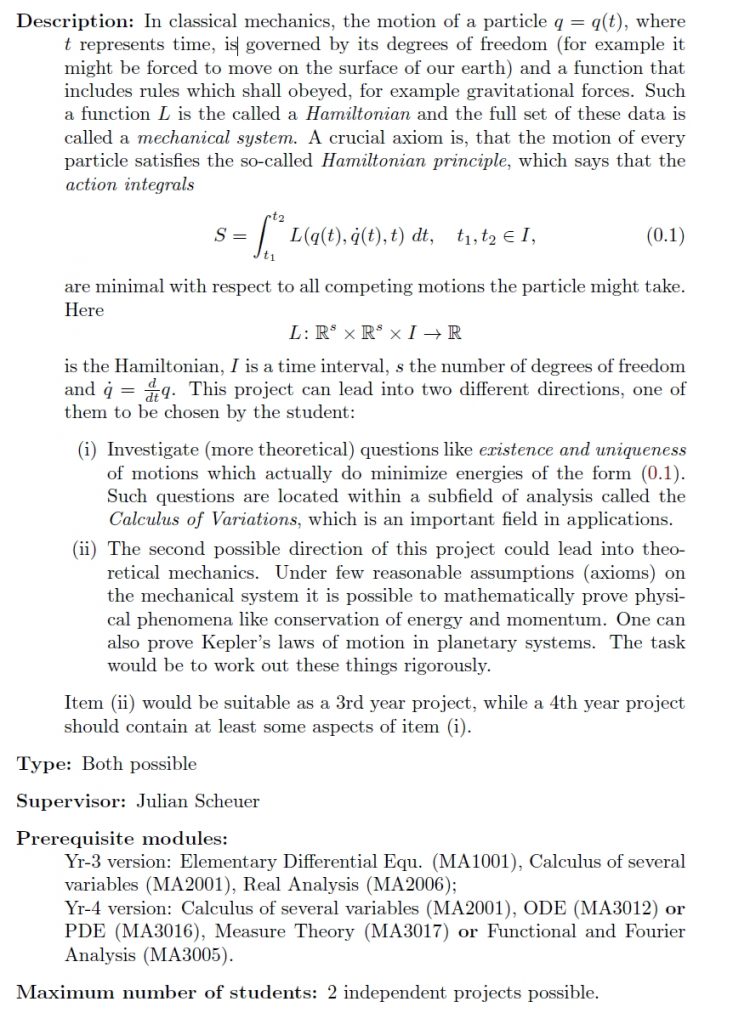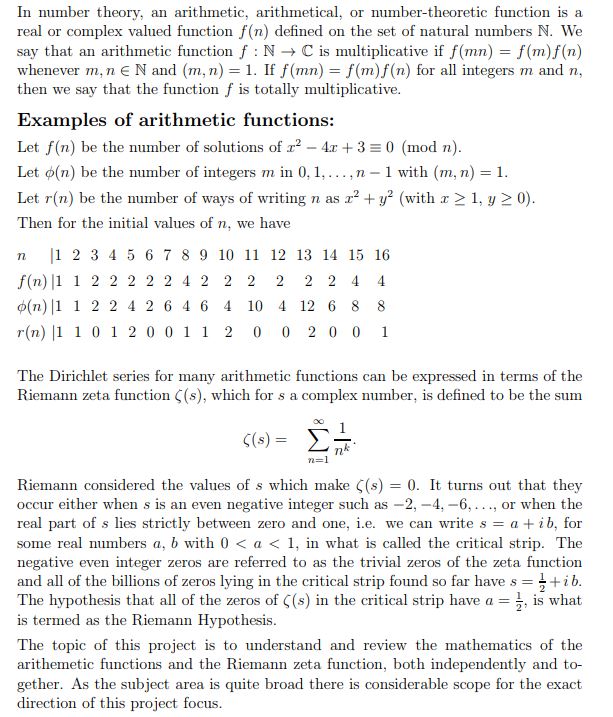Code: UP2122C
Supervisor: Ulrich Pennig
Project Description:
The fundamental group of a topological space, which we encountered in the algebraic topology course, is defined as the homotopy classes of based loops in the space, where the group multiplication is induced by concatenation. The fundamental group of the torus is generated by two such loops a and b. These commute, i.e. they satisfy ab = ba. Now consider the topological space obtained by gluing together two circles at a chosen base point, which looks like the figure 8. The fundamental group of this space is also generated by two elements, but this time there are no relations among them: The fundamental group is the free group on two generators.
The first goal of this project is to understand the definition of free groups and, more generally, amalgamated products of groups. We will then prove the theorem that subgroups of free groups are again free. This purely algebraic statement has a beautiful proof based on the theory of covering spaces. In the lecture we have already seen how the real line covers the circle in the sense that there is a map to the circle, such that preimages of neighbourhoods look like multiple copies of themselves. During the course of the project we will understand the basics of covering space theory, discuss coverings and fundamental groups of graphs and finally prove the result mentioned above.
Type: Year 4 MMath Project
Prerequisite modules:
– Algebraic Topology (MA3008)
– Groups (MA0213) or Algebra II: Rings (MA3013)
Max. number of students: 1

